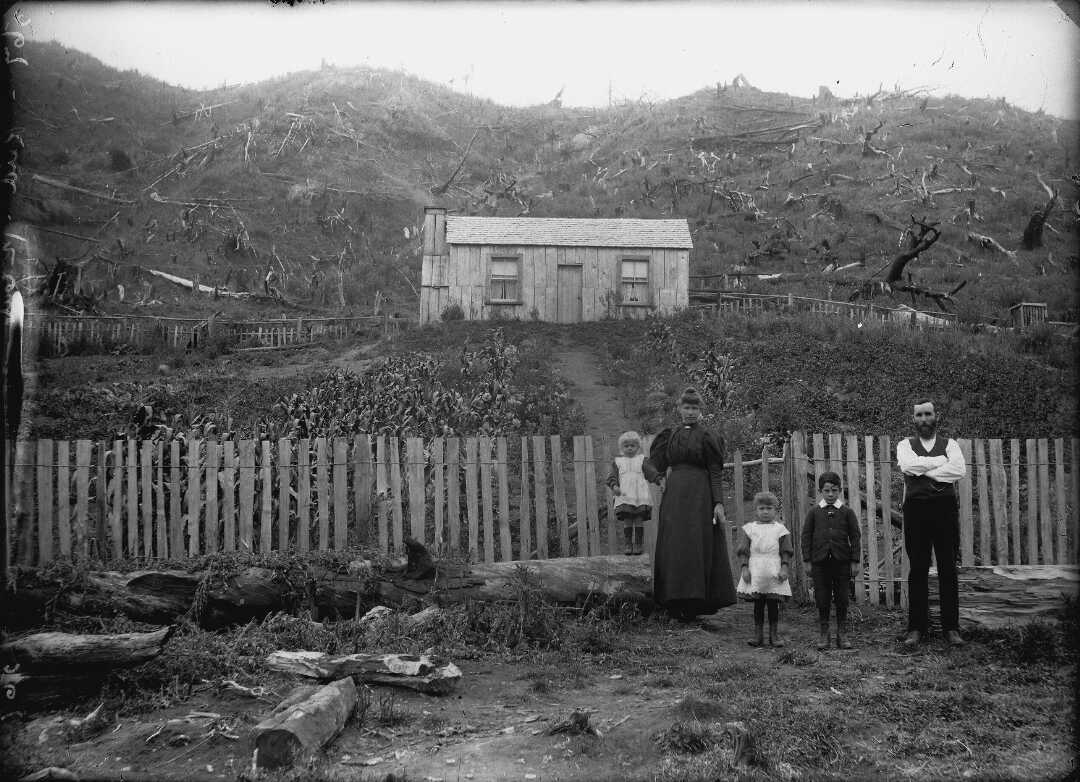NAVSA 2025: Aftermaths
November 13-16, 2025 | Omni Shoreham Hotel | Washington, DC
navsa@georgetown.edu

November 13-16, 2025 | Omni Shoreham Hotel | Washington, DC
navsa@georgetown.edu
Image: James McAllister, “The Reid family outside their slab hut home, Whangamomona,” c. 1898-1899. National Library of New Zealand, 1/2-065619-G. With thanks to Philip Steer.
PLEASE SEE DETAILED PROGRAMS FOR BOTH IN-PERSON AND DIGITAL PRESESSION COMPONENTS OF THE CONFERENCE USING LINKS ABOVE. Note that changes to both programs have occurred between drafts, as details have shifted. Please triple check all times, locations, and other details against the final program document now posted to the site.
Please click HERE to access a printable poster for the conference.
REGISTRATION FOR THE IN-PERSON CONFERENCE HAS NOW CLOSED. PLEASE REACH OUT TO NAVSA@GEORGETOWN.EDU WITH QUESTIONS.
NAVSA 25 will examine the unfinished qualities of the Victorian period. Across panels and keynotes, seminars and gatherings, we will together focus on the unevenly enduring aspects of nineteenth-century life: the irregularized loop effects, webs, and ripples that resonate between the period of Victorian modernization and its aftermaths today. We therefore invite consideration of social and political legacies, philosophical aftereffects, and cultural inheritances, while calling for attention to formal effects of duration, delay, and persistence in Victorian thought itself. Our goal will be to emphasize a global nineteenth century in whose aftermaths we now live.
The legacies of Victorian globalization range from a climatological emergency originating with carbon burned in Manchester factories to the racialized divisions of labor that persist in today’s cleavage between “Global North” and “Global South” —as well as the cultural, institutional, and aesthetic forms in which those material facts have been expressed and contested. Gender and family dynamics first naturalized in the Victorian period continue to shape intimate relations in the present. A special focus will fall on the legacies of enslavement, imperialism, and ecological damage still organizing the world today, and on the responsibilities for repair in light of those inheritances.
Themes will include: environmental crisis and its origins in nineteenth-century fossil capitalism and extractive practices; race and the legacies of imperialism, enslavement, freedom, and abolition in the present; histories of labor and information in the age of artificial intelligence and information capitalism; infrastructure, sustainability, and the endurance of built environments; the continuing reach of nineteenth-century categories of gender, sexuality, and the family; formal and aesthetic effects of delay, persistence, and incompletion; and improvisation, elaboration, and creativity in the context of inherited systems.
Please see the CFP page for the call for papers. The submission deadline is now closed. We expect to share decisions of acceptance by early summer. Registration will open shortly after that.